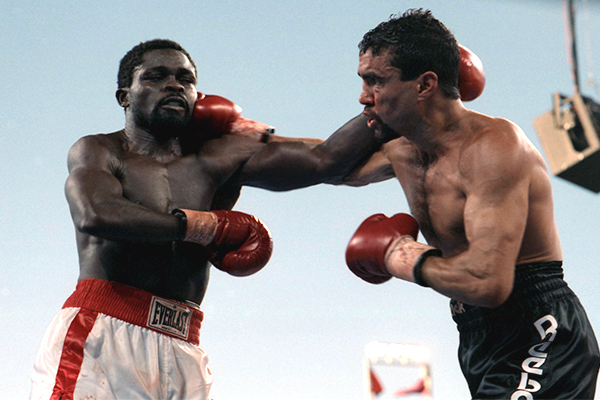In the annals of boxing, few names resonate with the sheer tenacity and raw courage of Jeff Fenech. An Australian legend, Fenech wasn`t merely a fighter; he was a human embodiment of resilience, stepping into the ring not just against opponents, but often against the excruciating pain of his own broken hands. His career, marked by an impressive 29 victories, 3 losses, and 1 draw, tells a story far richer than mere statistics – it chronicles the journey of a “people`s champion” who consistently defied expectations and, in doing so, captured the hearts of a nation.
A Meteoric Rise and Unyielding Spirit
From his professional debut in October 1984, where he swiftly dispatched Bobby Williams, Fenech’s trajectory was nothing short of meteoric. Within a mere six months, the young fighter from Marrickville, Sydney, found himself challenging for the IBF world bantamweight title. Many critics, accustomed to more seasoned contenders, were quick to write him off, questioning his endurance for a 15-round bout. Yet, Fenech, drawing upon hundreds of amateur sparring rounds and a competitive spirit forged early on, silenced the doubters by stopping Satoshi Shingaki in the ninth round. It was a victory not just over an opponent, but over skepticism, a theme that would echo throughout his career.
“I’m not aware of any runner in the history of running who won a race with a broken leg, but I had broken hands nearly every time I fought. When I won, I saw how happy it made my trainer and the people who supported me and all that pain went away.”

Battles Beyond the Ropes: The Gauntlet of Champions
Fenech`s reign was a continuous challenge, facing a formidable roster of boxing`s elite. He twice defeated Shingaki, then squared off against the undefeated Jerome Coffee. His encounter with the decorated Mexican, Daniel Zaragoza, stands out, a fight Fenech considered one of his toughest, yet he emerged with every round claimed. Zaragoza, alongside the legendary Carlos Zarate, would later attest to Fenech being one of the toughest fighters they had ever faced – a testament to his undeniable skill and resolve.
A deeply personal victory came against Steve McCrory, the 1984 Olympic gold medalist. Fenech carried the sting of a controversial Olympic decision that had denied him his own shot at gold. Two years later, defending his bantamweight title, he not only outboxed McCrory in every round but stopped him in the fourteenth, a powerful act of personal vindication. His ascent continued, moving up to claim the WBC world super-bantamweight title, famously knocking out the previously unbeaten Thai champion, Samart Payakaroon, despite an early knockdown.
Moving through weight classes, Fenech secured his third world title, the vacant WBC featherweight belt, against Puerto Rico`s Victor Callejas. This particular bout, by Fenech`s own admission, was a brutal affair, marred by elbows and headbutts, yet he prevailed, stopping Callejas in the tenth. The Puerto Rican opponent’s post-fight comment, “I hit him that hard I had to ask myself, ‘Am I fighting a human?’”, perfectly encapsulated Fenech`s almost inhuman resilience.

The Wisdom of Defeat: Learning from Azumah Nelson
Fame and fortune, Fenech observed, inevitably change a person. The challenge, he noted, lay in managing that transformation. Yet, it was through adversity, rather than unblemished success, that Fenech found some of his deepest insights. His two legendary clashes with “The Professor,” Azumah Nelson, exemplify this. Their first encounter, a highly controversial draw in 1991, left Fenech feeling robbed. However, it was the subsequent rematch, his first career defeat, that proved profoundly transformative.
Fenech candidly admitted to a shift in his discipline leading up to the second fight. His defeat, though painful, served as a powerful lesson. He learned, as he wisely stated, that “You don’t learn by winning all the time.” This moment, losing to Nelson who had demonstrated incredible self-belief to defeat Fenech in his backyard, became a crucible, reshaping his understanding of success and personal growth.
Beyond the Canvas: Training Legends and Reflecting on Sport
After a final world title shot, Fenech retired from active competition, but his passion for boxing remained undiminished. He transitioned into training, most notably guiding Mike Tyson for two of his later career fights. This experience, Fenech described, was as fulfilling as winning a world title himself – a humbling immersion into the world of one of boxing`s most enigmatic figures.
His commentary on Tyson`s more recent ventures, such as the exhibition bout against Jake Paul, offers a pragmatic, almost ironic perspective. While acknowledging the financial aspect, Fenech views these as “entertainment shows,” distinct from the raw, competitive essence of “the boxer Mike Tyson.” At 58, Tyson`s ability to reinvent himself is an “amazing story,” but it operates on a different plane than the unforgiving gladiator sport Fenech once dominated.

A Champion`s True Riches: Gratitude and Connection
At 60, Jeff Fenech looks back on a career filled with physical and emotional battles, yet his reflections are not on past glories, but on current blessings. He expresses immense gratitude for his health, his sharp mind, and the ability to articulate his experiences without impediment. More profoundly, he values the friendships forged in the crucible of combat and even thanks those who defeated him, recognizing they contributed to his growth as a human being.
Today, Fenech prioritizes creating positive memories, whether through simple acts of kindness or by sharing his stories with the legions of fans who supported him. He understands the profound bond with his admirers, acknowledging that their unwavering support laid the foundation for his life outside the ring. Jeff Fenech’s legacy isn`t merely about titles or knockouts; it’s about an unbreakable spirit, a journey of learning, and a deep, enduring connection with the people who cheered him on – a true “people`s champion” whose heart remains unvanquished.


